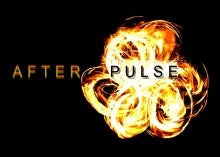"I love the Blue Moon and I love each and every one of you": Safety and Queer Space in the Wake of Violence

The weekend after the Pulse Nightclub massacre, Moon Baby hosted a drag show at the Blue Moon Bar in Pittsburgh, with proceeds to benefit victims. This did not seem out of the ordinary, as the same bar had hosted another benefit show for Pulse victims earlier in the week, hosted by a different performer, and my queer contacts in other cities were posting links to donation sites and invitations to their own local bars’ benefit shows. In other words, my online and offline social networks were full of people offering support—monetary and otherwise—in the wake of the horrific events at Pulse.[1]
To introduce the show, Moon Baby spoke to her audience about the importance of safe spaces and how the Blue Moon has been such a space for her. But she also stressed the importance of not taking the safety of queer spaces for granted, emphasizing that the people in the Blue Moon make the space safe. Barely holding back tears, Moon Baby described the Blue Moon as a loving, supportive space, especially for queer people who have been abandoned or rejected by their biological families. After pausing to collect herself, she participated in making the space safe by telling the audience, “I love each and every one of you.”
But Moon Baby’s declaration of love was not the end of her introduction. She also spoke about the violence queer people can face simply for existing, describing the fear she felt after the Pulse massacre. She was horrified to see that even a safe space—one made safe by its people—could become a scene of such terrible violence, but she also insisted we must not be ruled by fear. She encouraged being out and proud to resist material and symbolic violence. She reminded us to continue loving and supporting each other to maintain the safety of queer spaces like the Blue Moon because that is the best thing we can do for ourselves in response to an event like the Pulse massacre. Moon Baby’s simultaneous acknowledgment of the potential safety in queer spaces and the work required to create and maintain a safe space was particularly appropriate during a benefit for Pulse at the Blue Moon because the Blue Moon is, for the most part, one of the safe spaces Moon Baby described and because of the implicit contrast between the Blue Moon and other gay bars in Pittsburgh.
While the Blue Moon held three benefit shows in the week after the Pulse massacre, raising over $5,000 for victims, other gay bars in Pittsburgh stayed mostly silent on the issue. This contrast is especially significant because the Blue Moon is known for its cheap drinks and lack of cover, attracting a mostly queer clientele of relatively limited means. On the other hand, the bars that did not host benefits play host to a more affluent, homonormative segment of Pittsburgh’s gay[2] community. While those with Marxist inclinations might not be surprised at the contrast in community investment between affluent and working-class LGBTQ bars, the difference still speaks to the work that must be done on the intersections of queerness with other social identities in order to address continued sources of inequality within our community.
Notes
[1] I refuse to take on the word “tragedy” for the shooting because using that word makes it easier to dismiss the taking of lives as an event without clear fault or blame. There is fault. There is blame. We need to address all of the social issues that enabled the shooting in order to fully heal from it.
[2] In Pittsburgh, the term “gay” simply indicates that one is sexually and/or romantically attracted to people of the same gender, without necessarily implying rejections of other social norms or involvement in radical queer politics. “Queer” indicates a refusal to assimilate to established gender and sexuality norms and can include lesbian, gay, bisexual, and transgender people, though it is certainly not limited to those identities.





